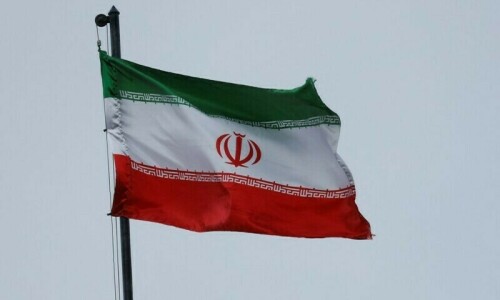TEHRAN: Iran said on Monday it was open to indirect talks with the United States, after President Donald Trump had demanded negotiations for a new nuclear deal.
“The way is open for indirect negotiations,” Foreign Minister Abbas Araghchi said, dismissing the prospect of direct talks “until there is a change in the other side’s approach towards the Islamic republic”.
The top Iranian diplomat said Tehran would not engage in direct talks with Washington under threats and so long as Trump maintain his “maximum pressure” policy. Under that policy in his first term as president, Trump withdrew the United States from a landmark agreement on Iran’s nuclear programme in 2018 and reimposed crippling sanctions on Tehran.
The deal, sealed in 2015 between Tehran and world powers, required Iran to limit its nuclear ambitions in exchange for sanctions relief. Western countries including the United States have long accused Iran of pursuing a nuclear weapon, which Tehran has denied, insisting its enrichment activities were solely for peaceful purposes.
Baghdad accuses Tehran of using forged Iraqi documents on oil tankers
On March 7, Trump said he had written to Iran’s supreme leader Ayatollah Ali Khamenei to call for nuclear negotiations and warn of possible military action if Tehran refused. The letter was delivered to Tehran on March 12 by UAE presidential adviser Anwar Gargash.
On Friday Khamenei said US threats “will get them nowhere”, warning of reciprocal measures “if they do anything malign” against Iran. He has also has dismissed Trump’s outreach for talks, accusing him of attempting to deceive global public opinion by portraying the United States as willing to negotiate and Iran as unwilling to engage.
Araghchi on Thursday said Trump’s letter was “more of a threat”, but added that it could also open up some opportunities and that Tehran would respond soon. The Iranian top diplomat also said on Monday that “no one would even think of invading” Iran, “given that the country’s preparedness is very high and at 100 per cent.” “This is because they are familiar with the consequences,” he added.
US Middle East envoy Steven Witkoff, in an interview, said Trump’s goal was to avoid military conflict by building trust with Iran. He insisted the letter was not meant as a threat.
Araghchi also said in an interview that “letters and correspondence make part of diplomacy” but they also can be a “part of pressure and threats.” “But the reality is that it can never be said that the path of diplomacy is over, because the alternative to diplomacy is war,” he added.
Tehran and Washington cut diplomatic ties after Iran’s 1979 Islamic Revolution that toppled the Western-backed shah. Since then, the Swiss embassy in Tehran has facilitated communications between the two nations. Gulf state Oman has also mediated indirect talks on Iran’s nuclear issue via the so-called “Muscat process”, which Araghchi had said in October was “halted for the time being.”
Separately, Iraq’s oil minister Hayan Abdel-Ghani has told state television that Iranian oil tankers stopped by US forces in the Gulf were using forged Iraqi documents. US President Donald Trump’s administration has restored his earlier “maximum pressure” policy on Iran, reviving a policy that seeks to isolate the country from the global economy and eliminate its oil export revenue in order to slow Tehran’s development of a nuclear weapon.
Published in Dawn, March 25th, 2025















































